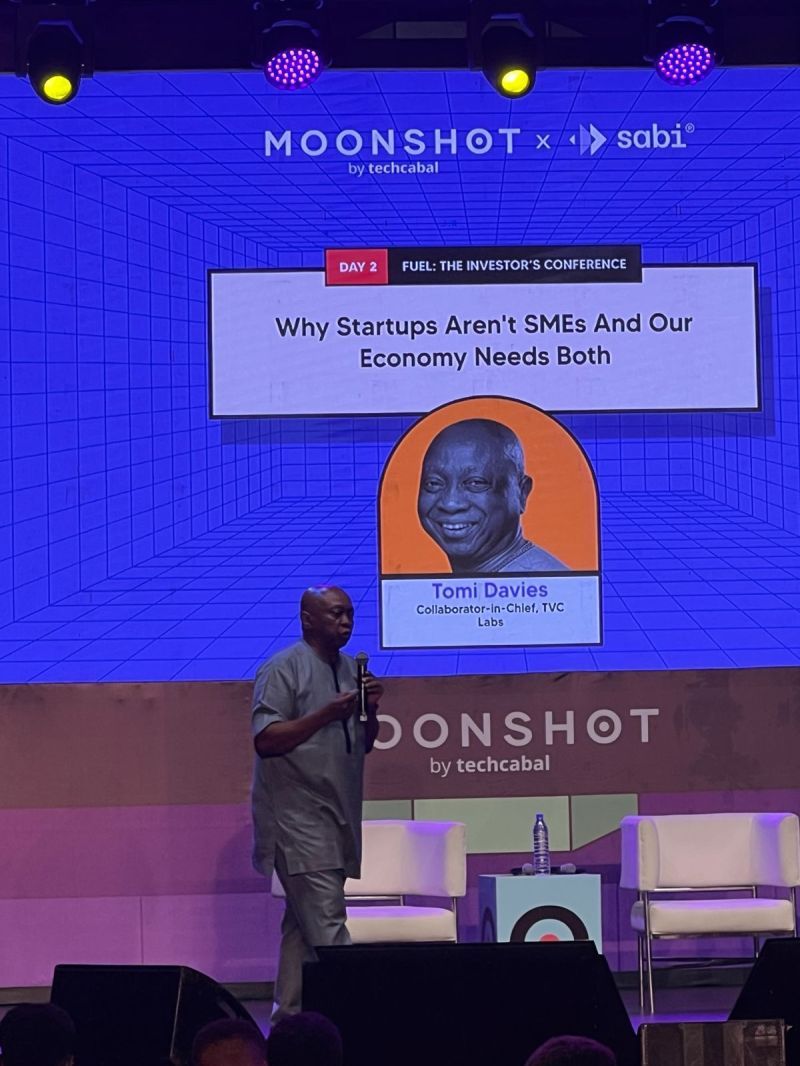
Systems Analyst turned Public Speaker, Tech Strategy Advisor and Angel Investor, Harry ‘Tomi Davies is Collaborator-in-Chief at TechnoVision, co-founder of the Lagos Angel Network (LAN) and President of the African Business Angel Network (ABAN).
Davies recently spoke in the main arena at Moonshot by TechCabal 2024 – a conference that brings together Africa’s tech ecosystem – about the difference between Startups and SMEs (Small and Medium Enterprise) and why both matter to an economy. Here is a summary of his speech:

For me, the first key differentiator is that Startups are designed to scale fast and so target exponential growth. They are focused on disruptive innovation that enables them enter large markets quickly by optimising their business models for that growth. This growth mindset makes them attractive to angel investors and venture capitalists. SMEs on the other hand aim to build sustainable, profitable businesses over time, usually serving local or regional markets with a stable customer base. Their focus is on steady, incremental growth funded through traditional financing methods like bank loans.
The second key difference between them is the associated innovation risks. As startups are usually experimenting with new technologies, business models, or markets that either result in rapid success or failure they are extremely high-risk ventures. Compared to startups, as they usually operate in established markets with proven business models. They innovate at a slower pace and focus more on consistency and long-term sustainability rather than disruption.
Lastly, SMEs typically have a well-defined and proven business model from the outset. They focus on offering established products or services to a stable customer base and aim for profitability from the early stages. Startups meanwhile begin with an unproven business model, which they refine through rapid iteration and customer feedback. They are typically focused on solving specific problems in ways that haven’t been addressed before, with the end goal of creating a scalable, repeatable business model.
So why does any economic ecosystem need both?
Well, SMEs are the backbone of economies, providing stability, local employment, and contributing significantly to GDP. They serve as long-term economic stabilizers, providing essential goods and services in traditional industries like retail, manufacturing, and agriculture.
Startups complementarily drive innovation and disruption, creating new markets and technologies that transforms industries and enhance a country’s global competitiveness. They often are magnets for attracting external investment and create high-value jobs in sectors like education, finance, energy, healthcare, agriculture and others.
So as you can see both startups and SMEs play critical roles in fostering a balanced economic ecosystem: startups push boundaries and drive future growth, while SMEs ensure economic stability and sustainability. Together, they contribute to innovation, job creation, and economic resilience.

